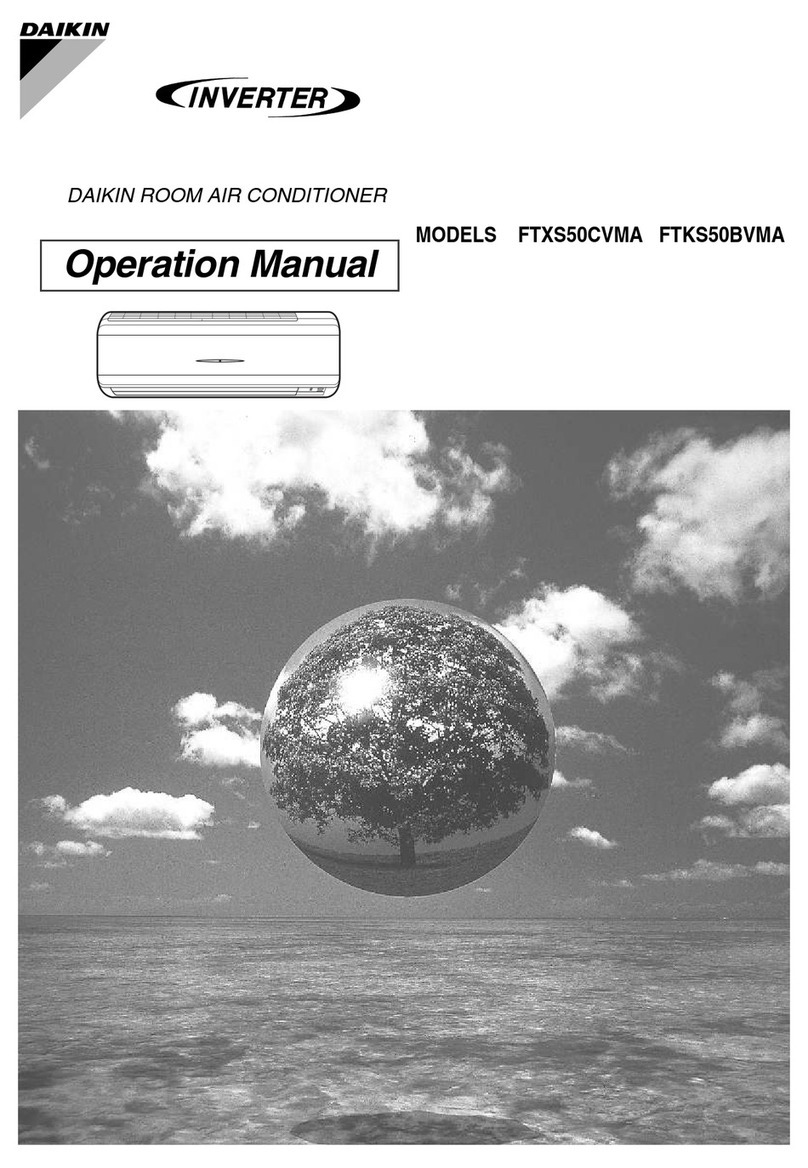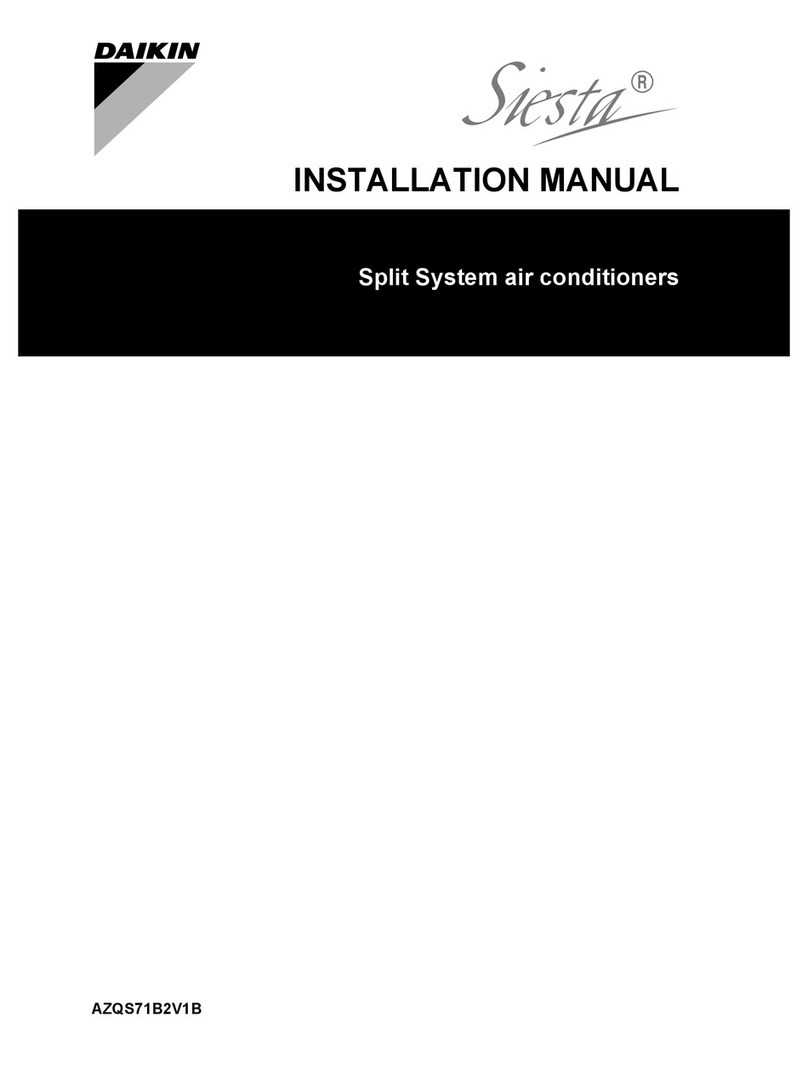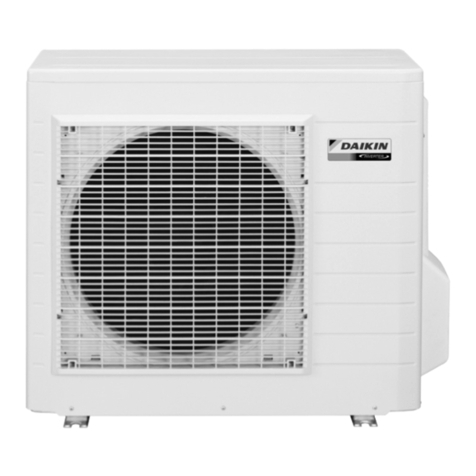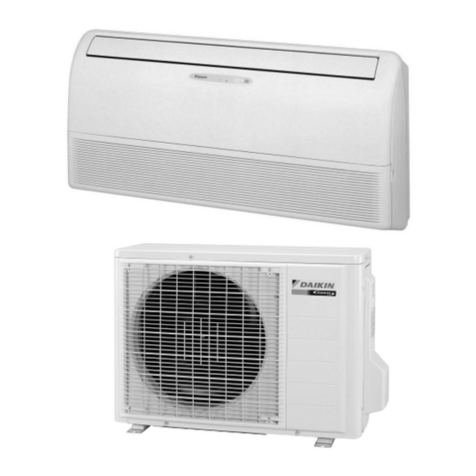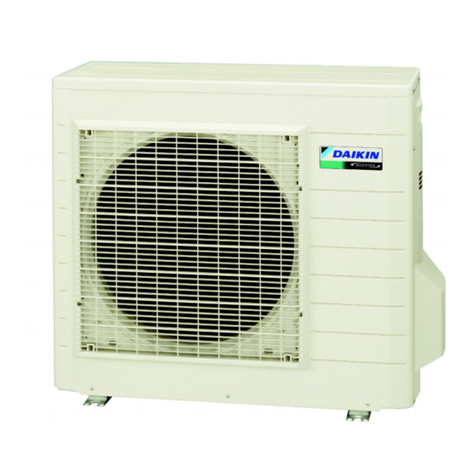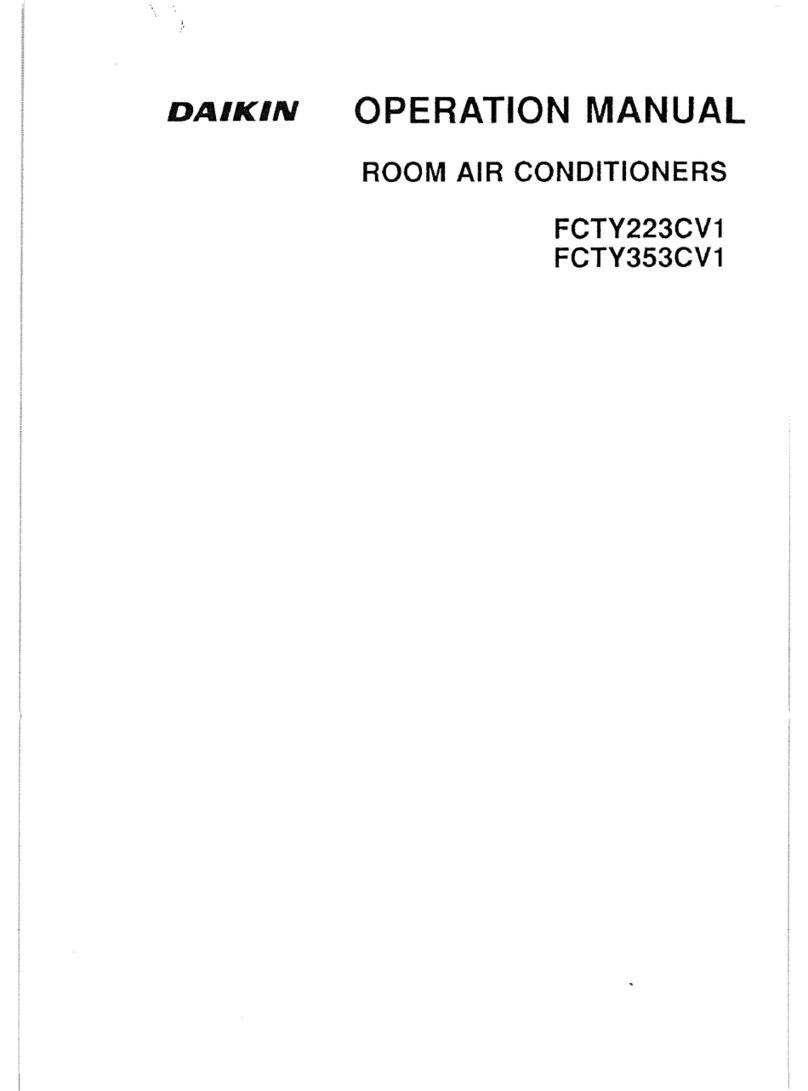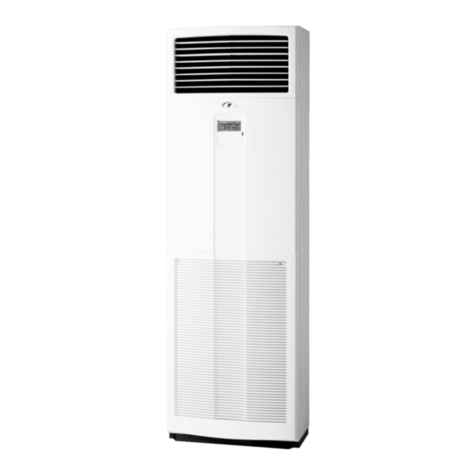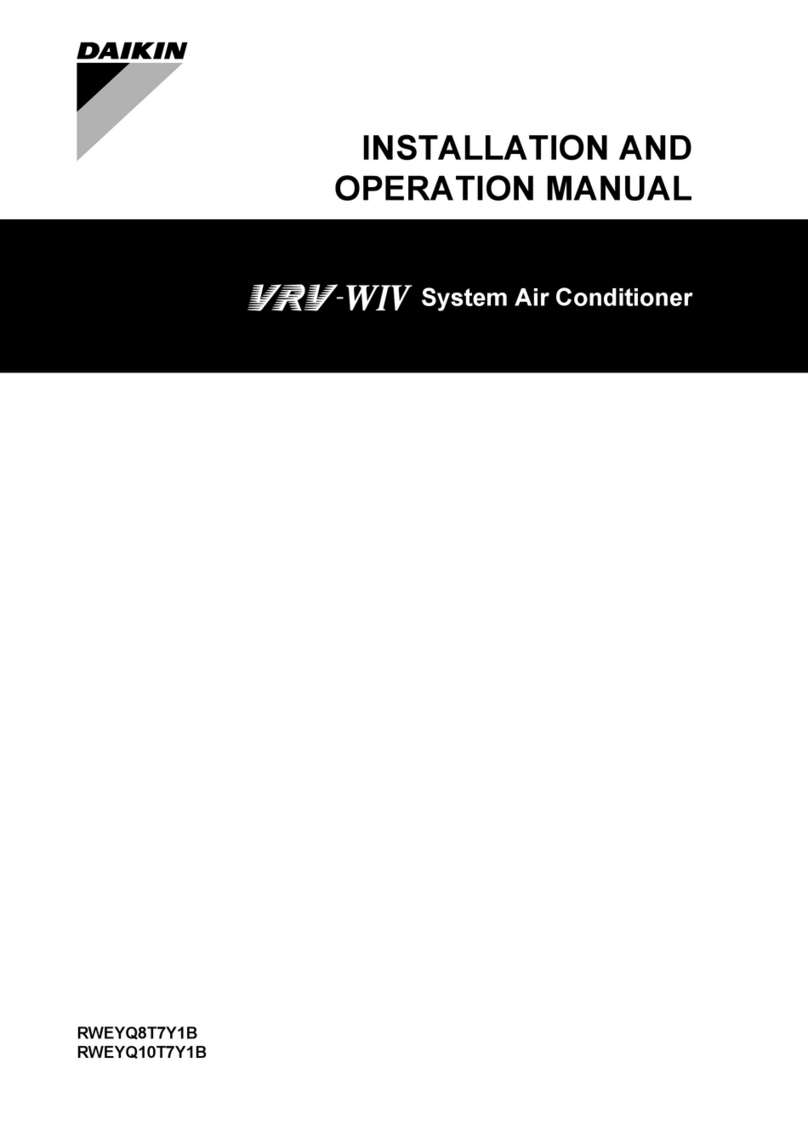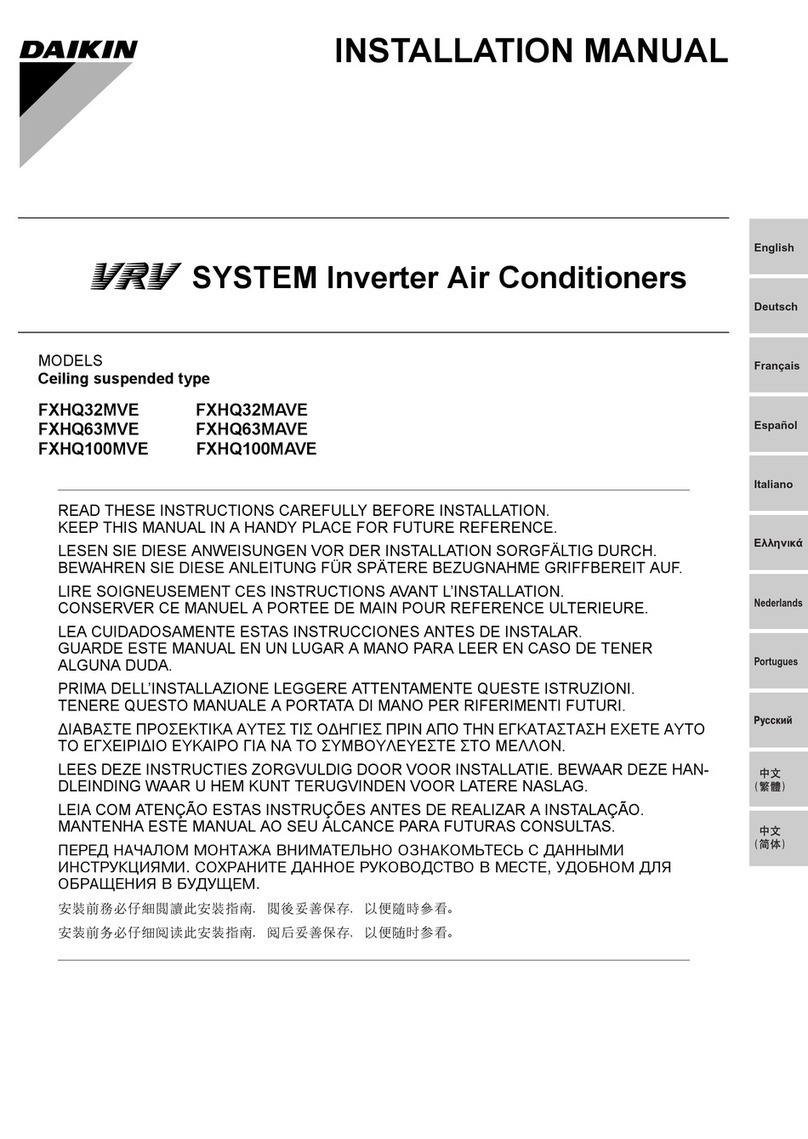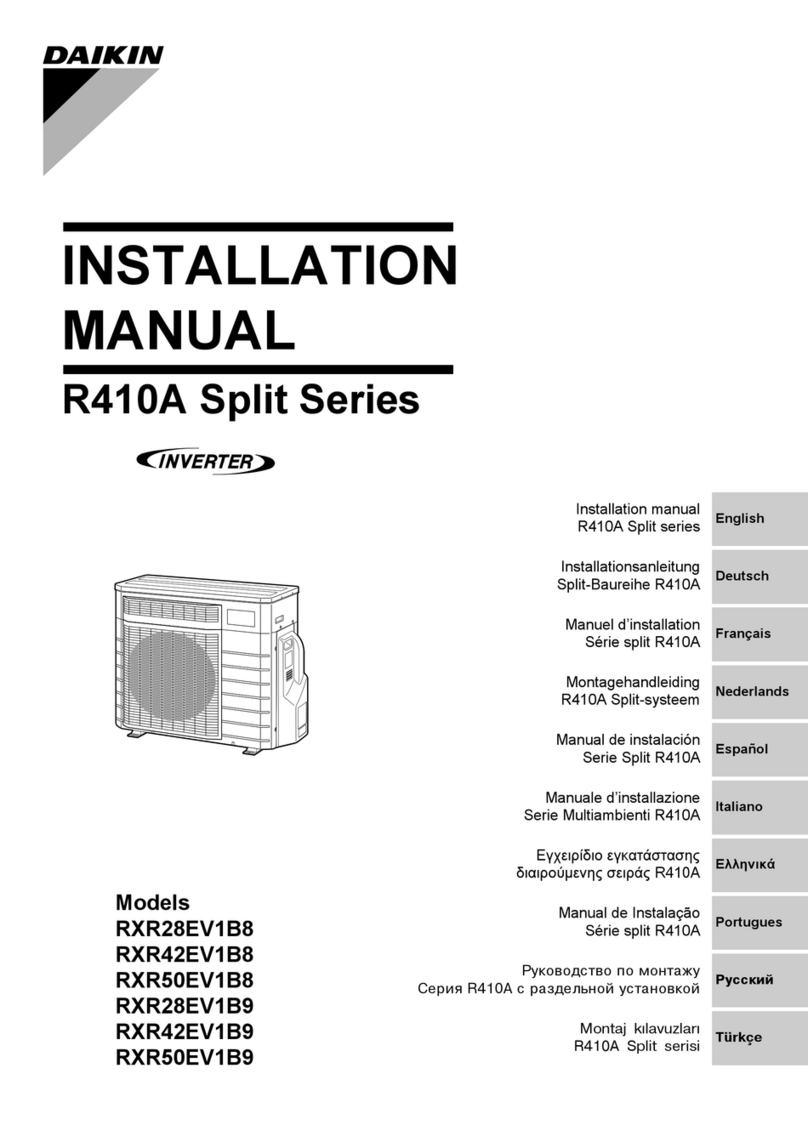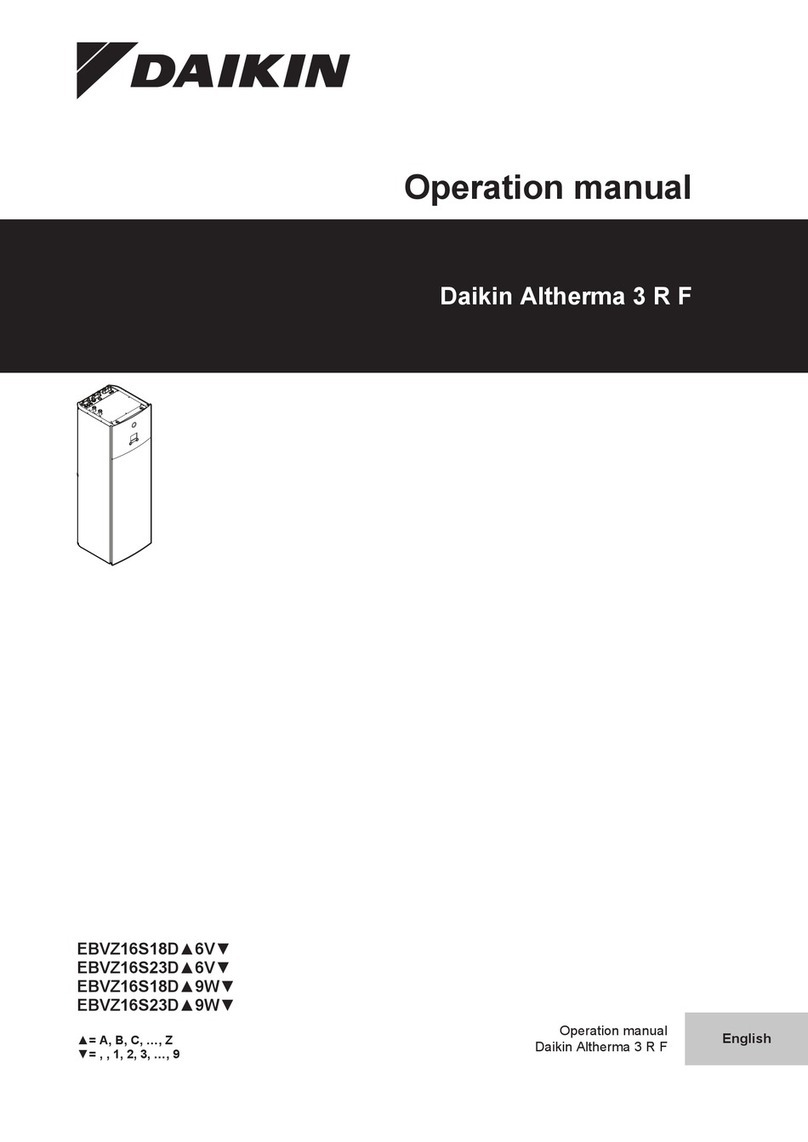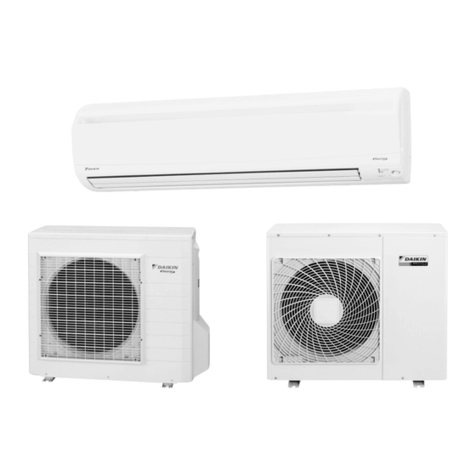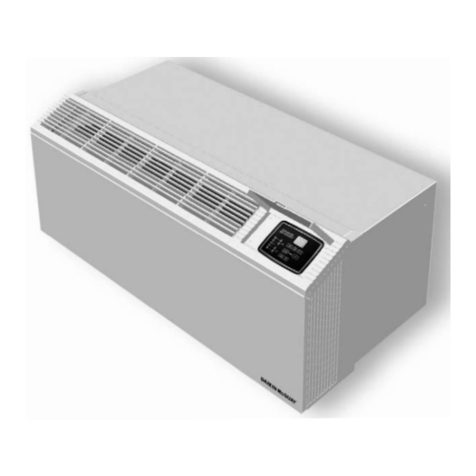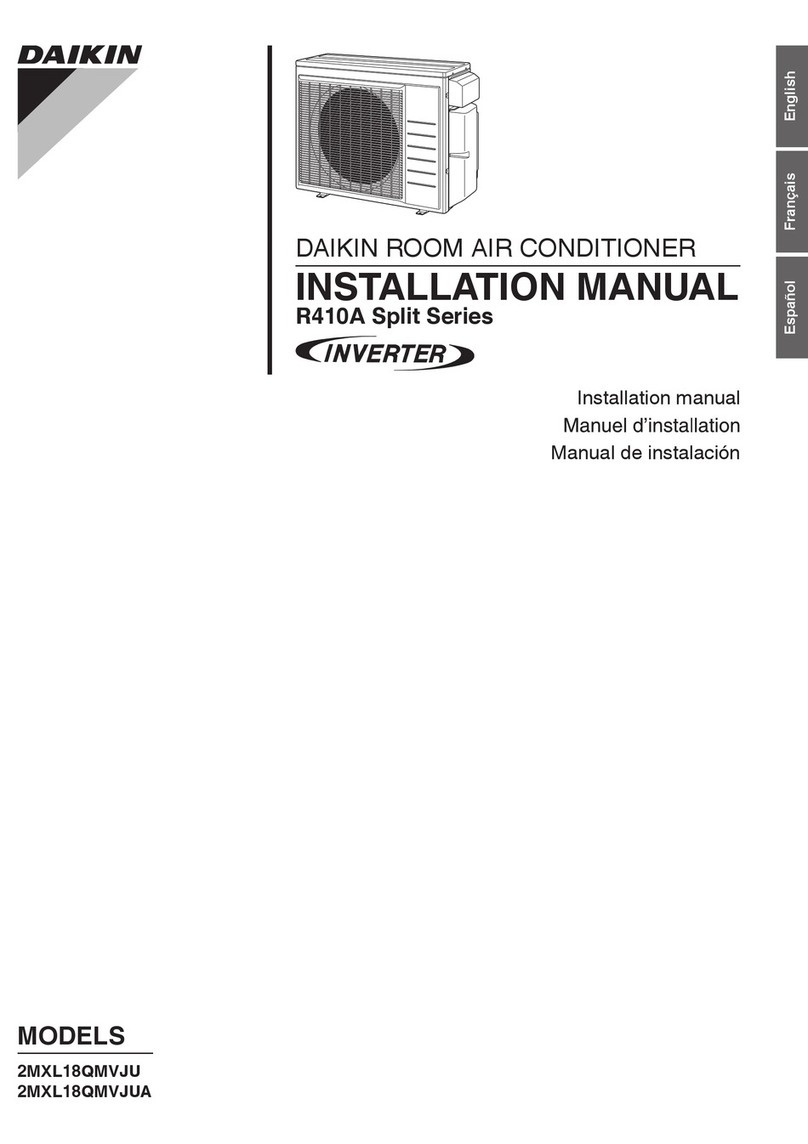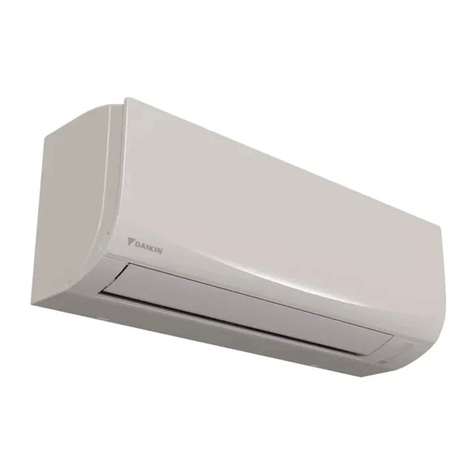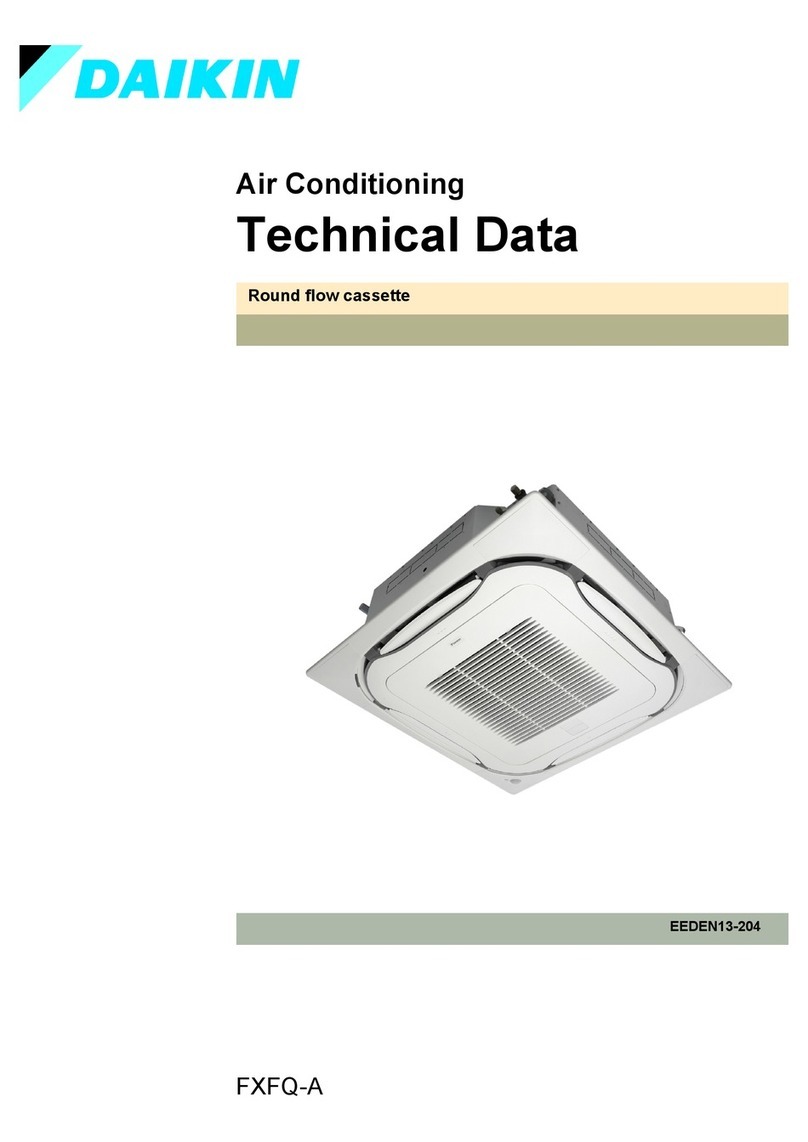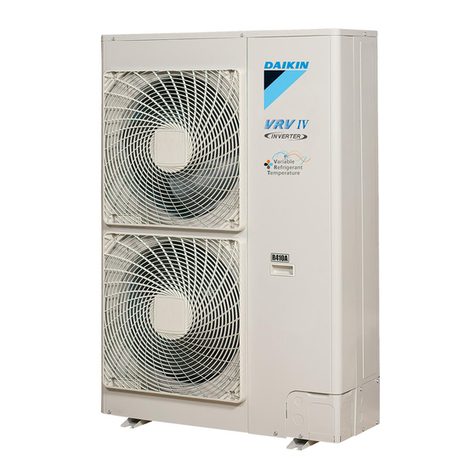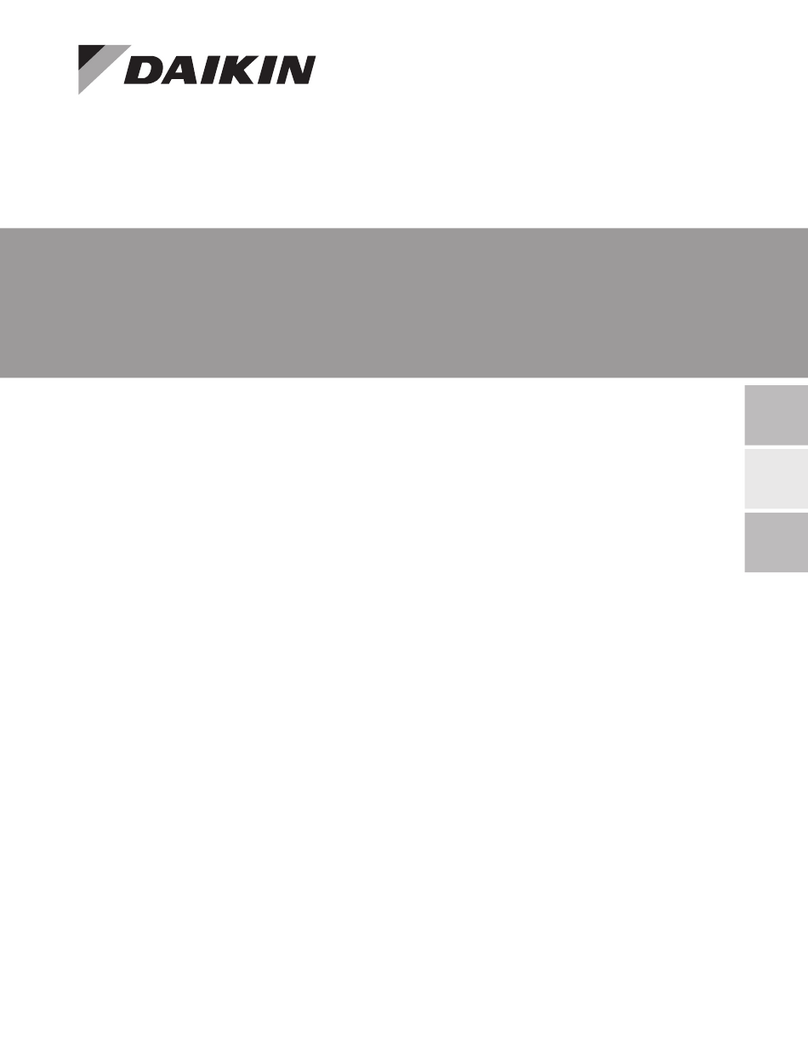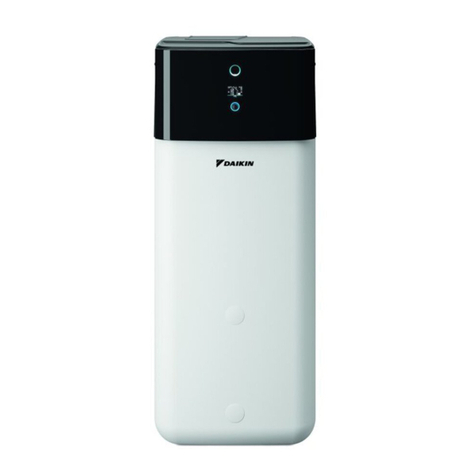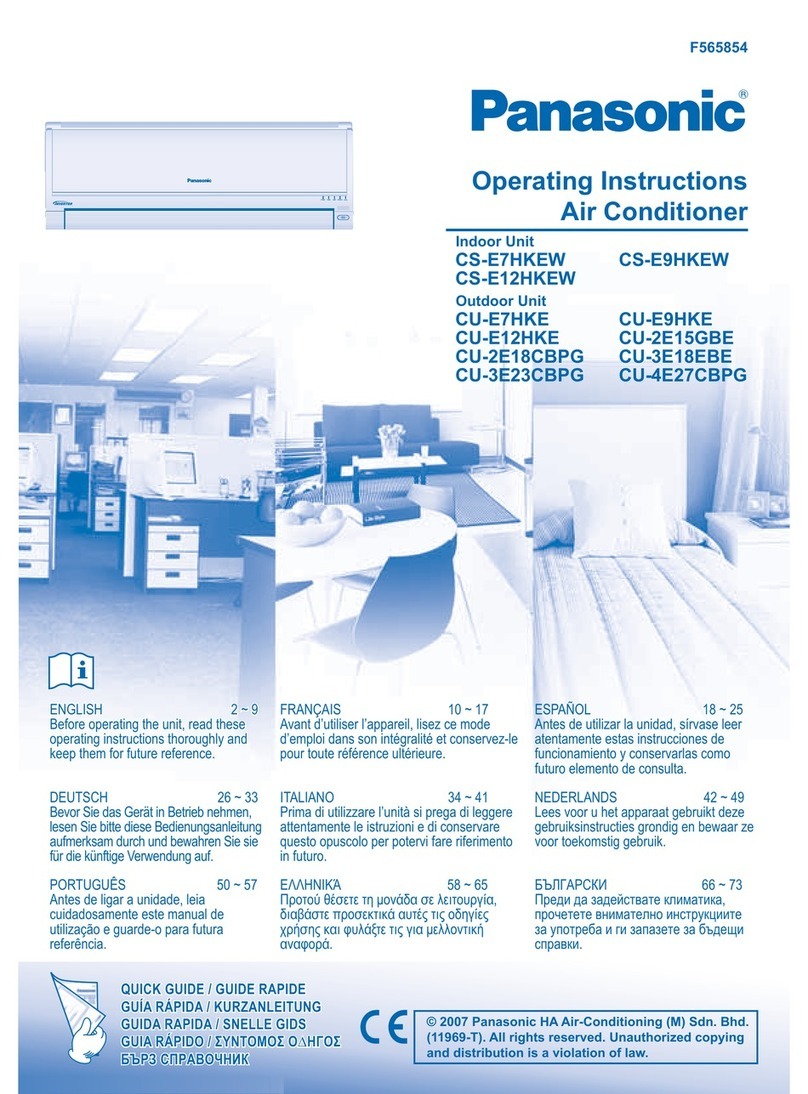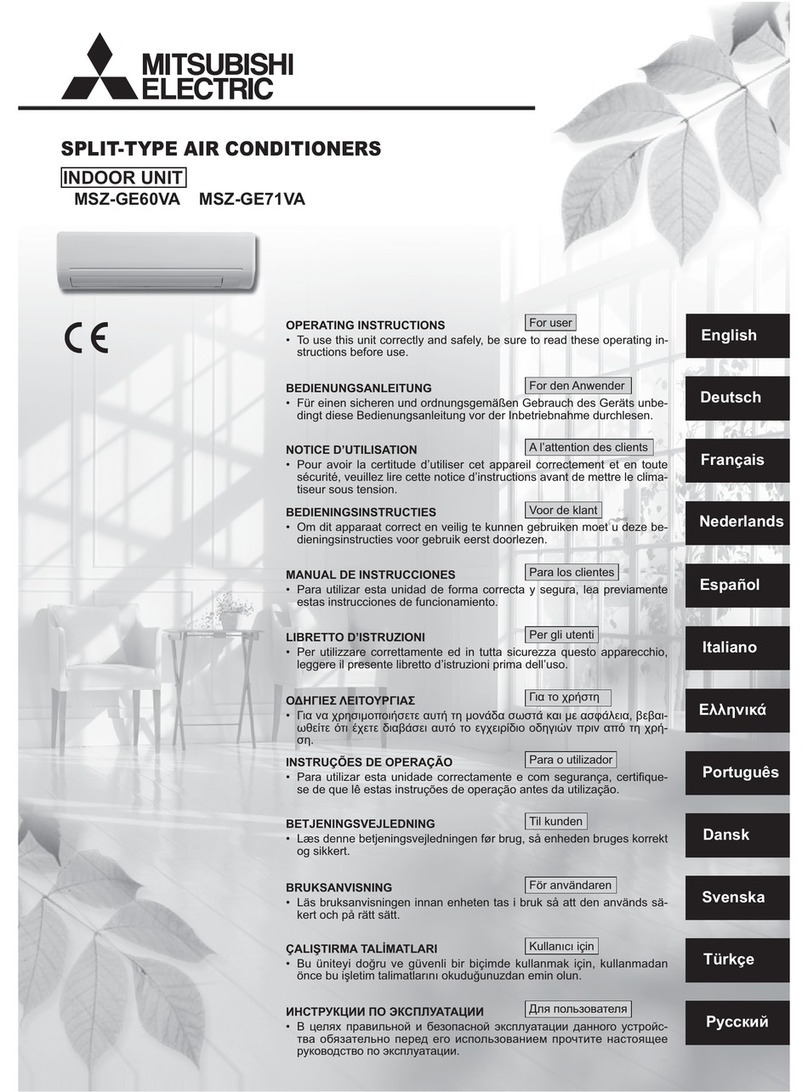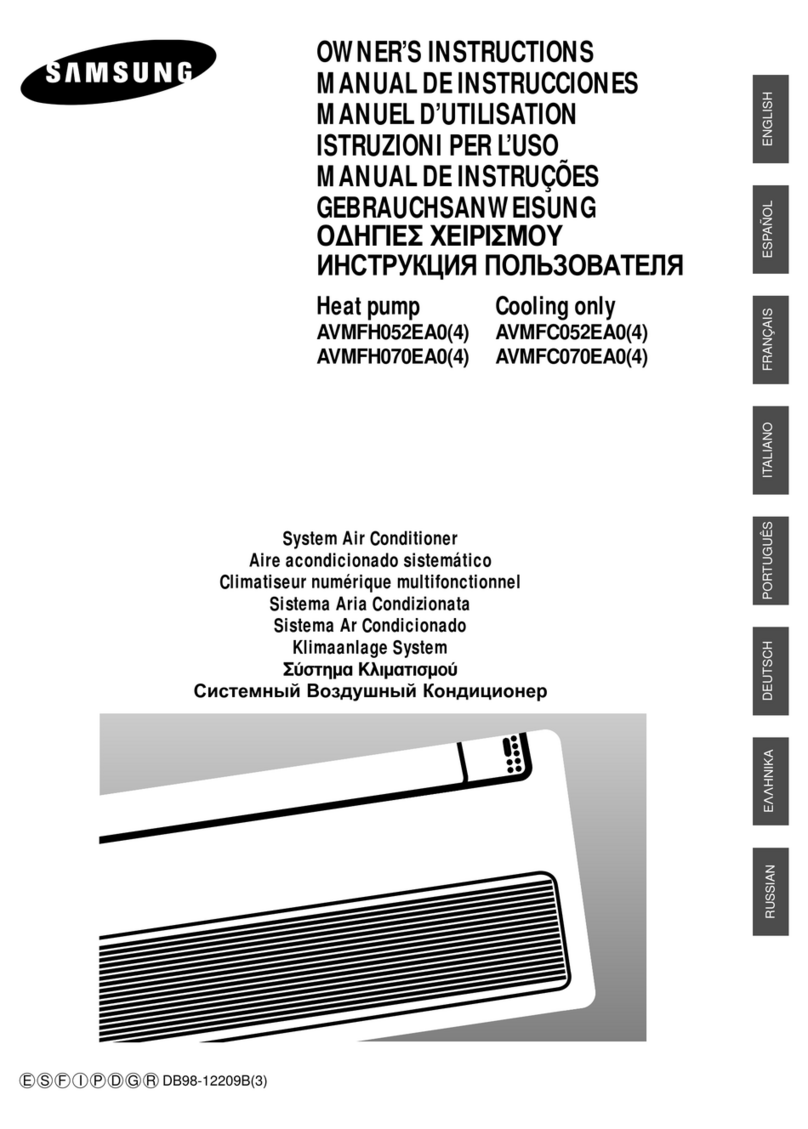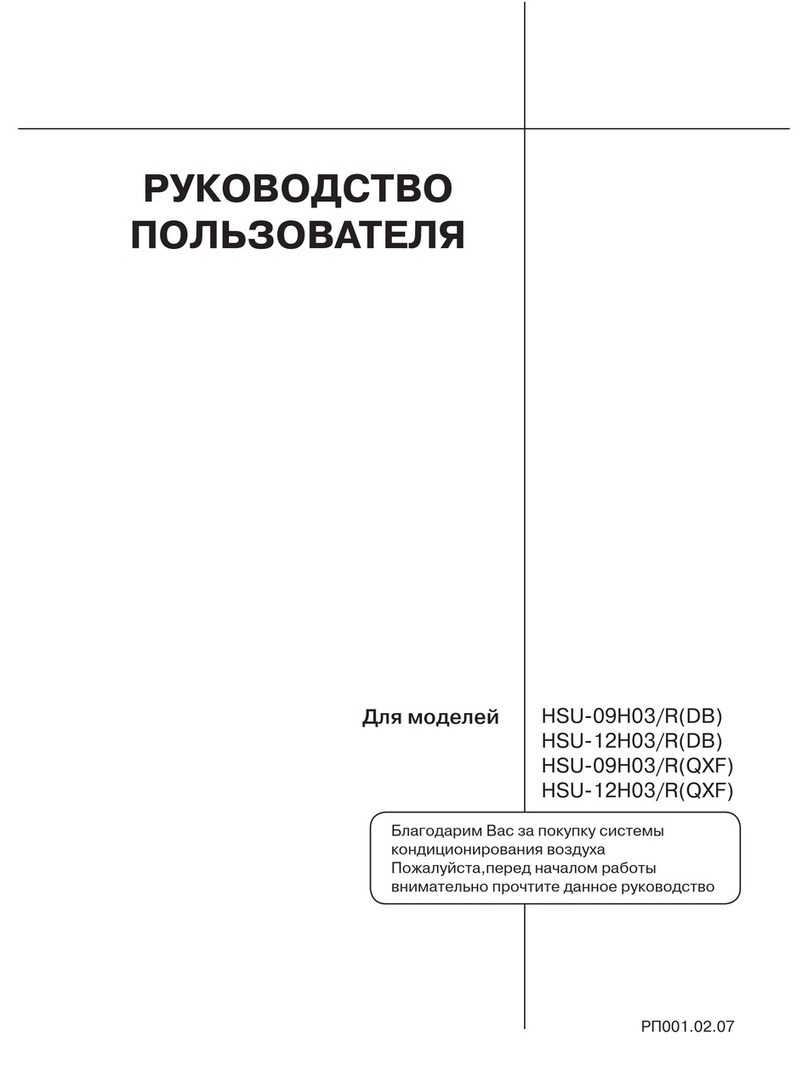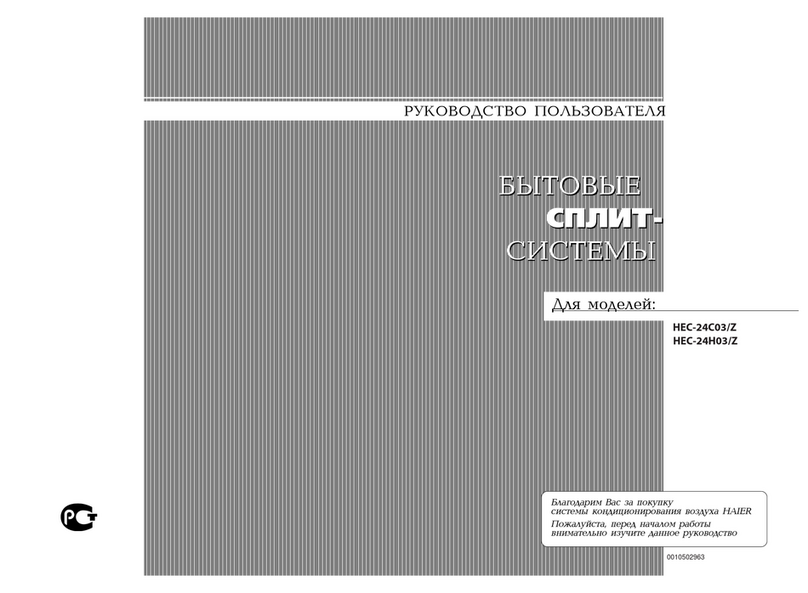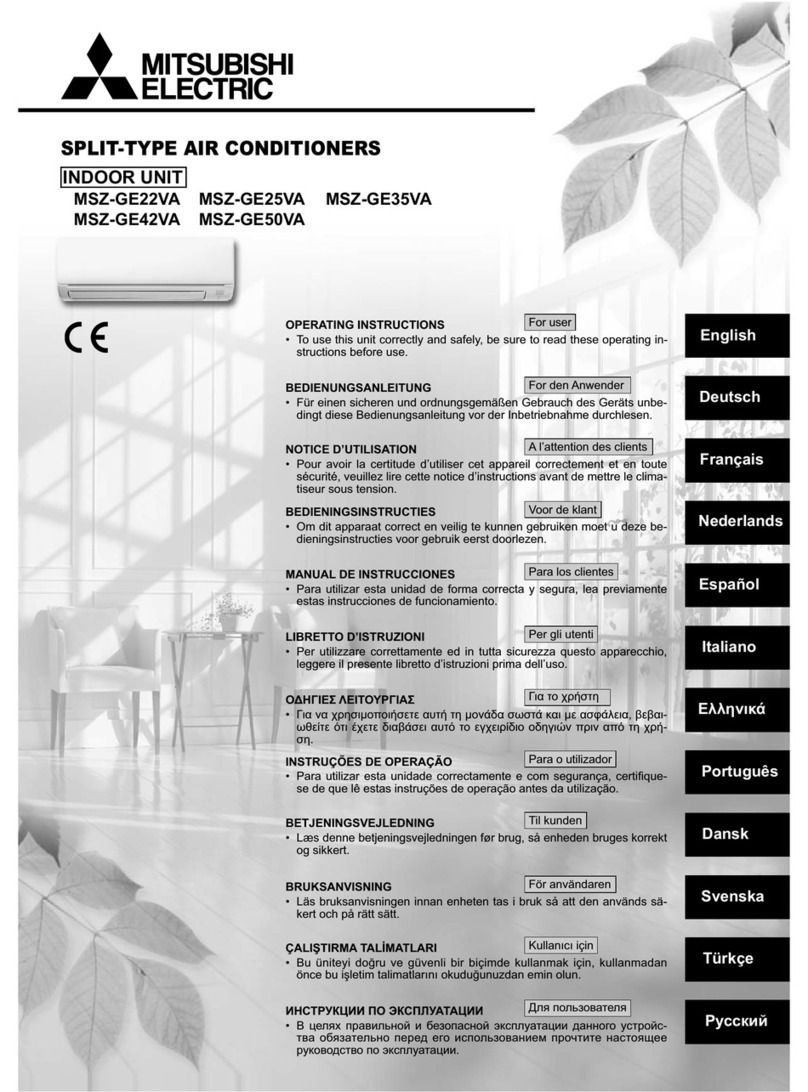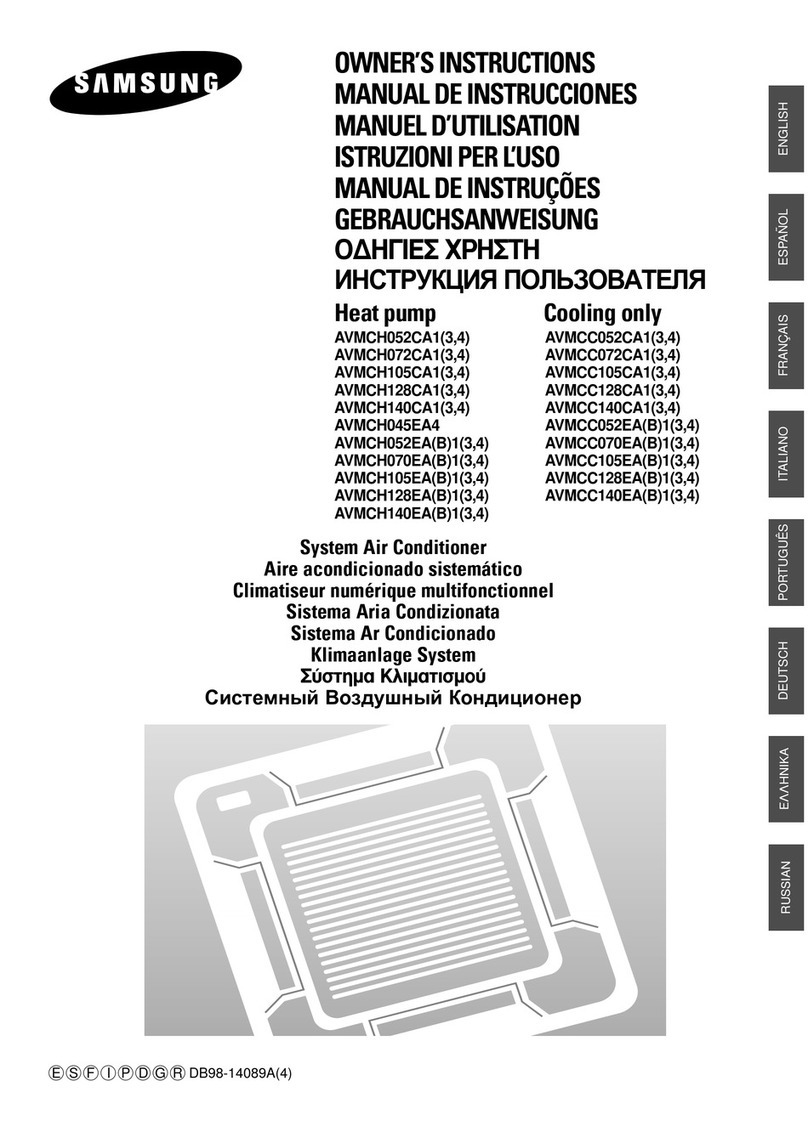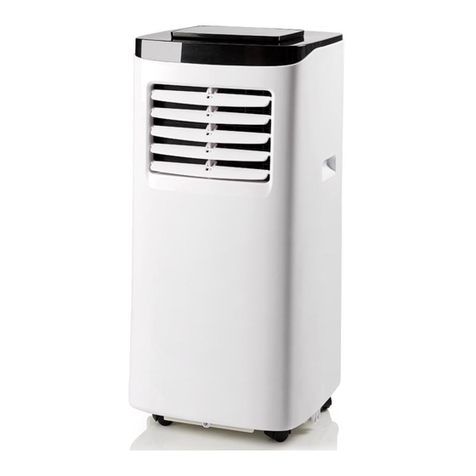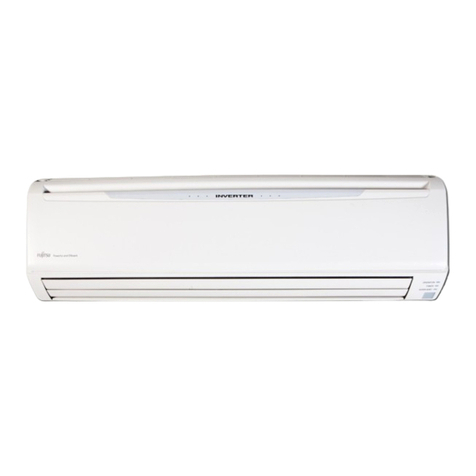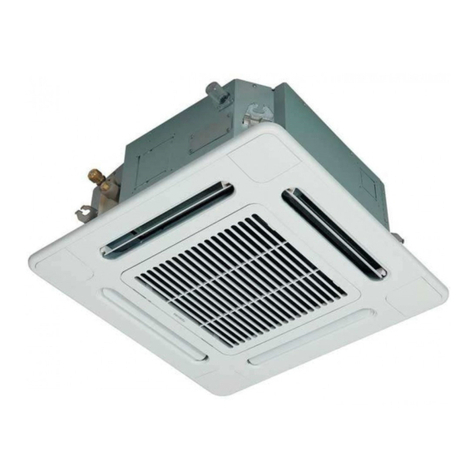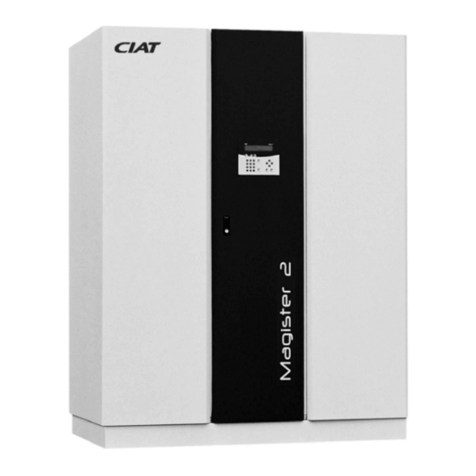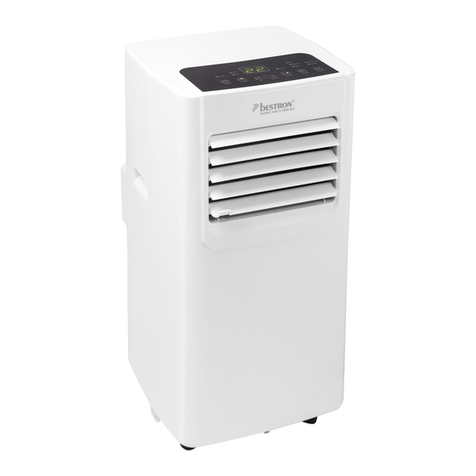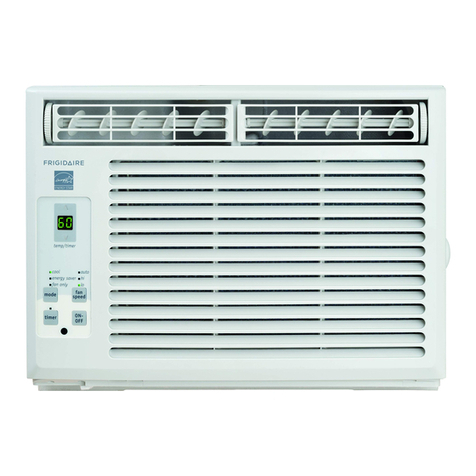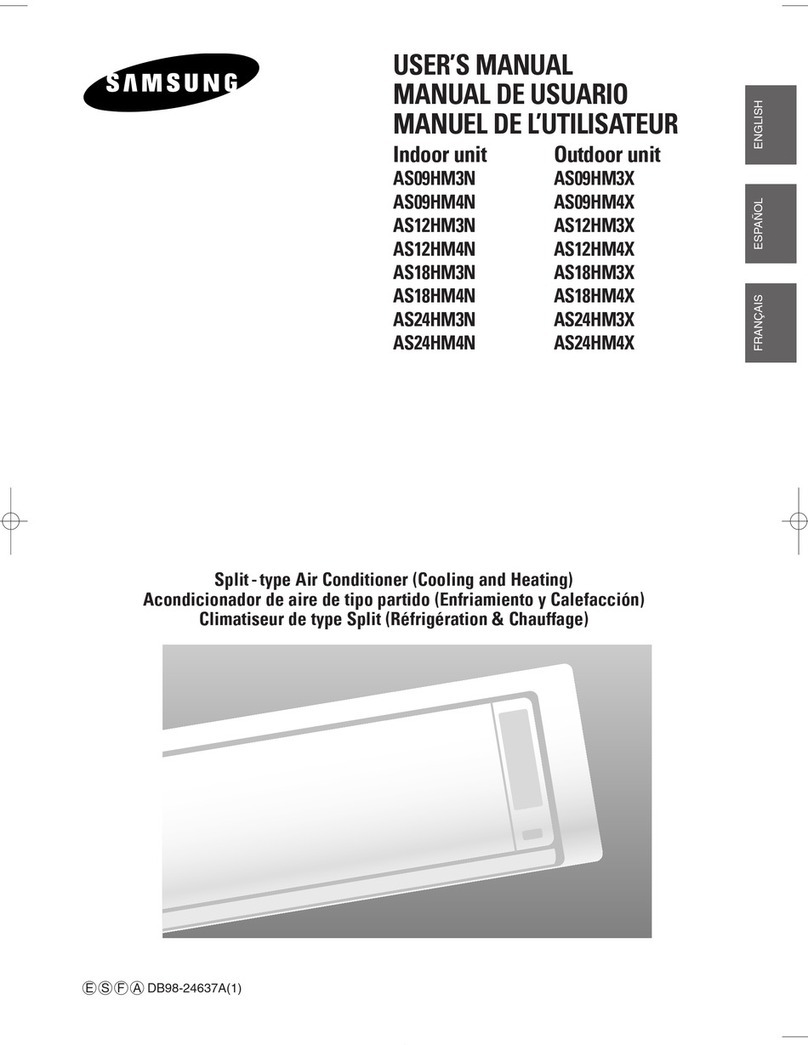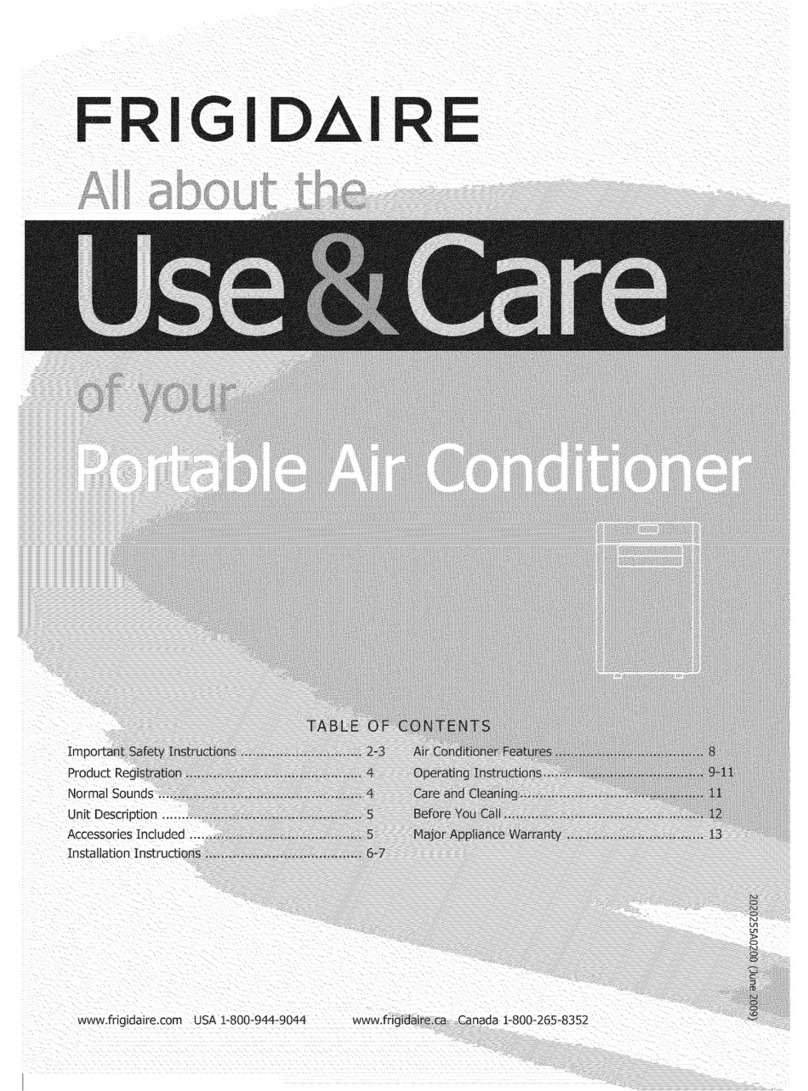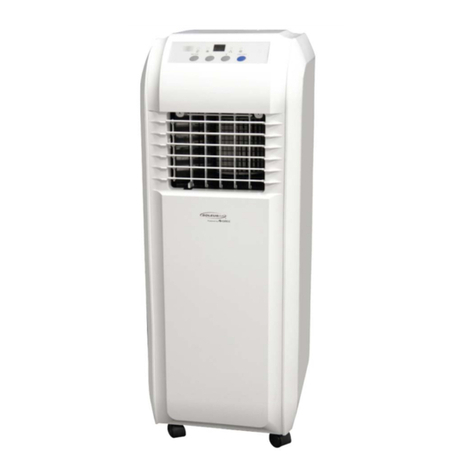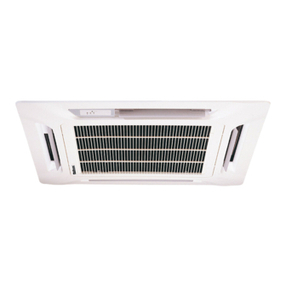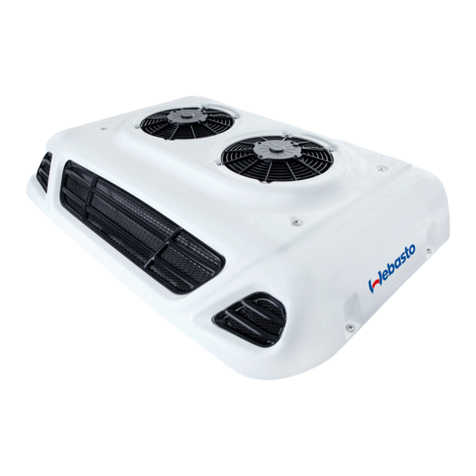
English 2
• Never touch the internal parts of the controller. Do not
remove the control box cover because some parts inside
are dangerous to touch. To check and adjust internal
parts, contact your dealer.
• Be sure to ground the unit.
Do not ground the unit to a utility pipe, arrester, or tele-
phone ground. Incomplete grounding may cause electric
shock, or fire. A high surge current from lightning or
other sources may cause damage to the air conditioner.
• This equipment can be installed with a Ground-Fault Cir-
cuit Interrupter (GFCI). Although this is a recognized
measure for additional protection, with the grounding
system in North America, a dedicated GFCI is not neces-
sary.
• Do not use the air conditioner for any other purposes
other than comfort cooling or heating. Do not use the
unit for cooling precision instruments, food, plants, ani-
mals or works of art.
• Do not place items under the indoor unit as they may be
damaged by condensates that may form if the humidity
is above 80%, or if the drain outlet gets blocked.
• Before cleaning, turn the unit off and disengage power.
Otherwise, an electric shock and injury may result.
• Do not wash the air conditioner with excessive water. An
electric shock or fire may result.
• Avoid placing the controller in a spot where it can be
splashed with water. Water entering the controller may
cause an electric shock or damage the internal elec-
tronic parts.
• Do not operate the air conditioner when using a room
fumigation type of insecticide. Failure to observe this
could cause the chemicals to be deposited in the unit
and can endanger the health of those who are hypersen-
sitive to chemicals.
• Do not turn off the power immediately after stopping
operation. Always wait for at least five minutes before
turning off the power. Otherwise, water leakage may
occur.
• The appliance is not intended for use by young children
or infirm persons without supervision.
• The remote controller should be kept away from children
so they cannot play with it.
• Consult with the installation contractor for cleaning.
• Incorrect cleaning of the inside of the air conditioner
could make the plastics parts break and cause water
leakage or electric shock.
• Do not touch the air inlet or aluminum fin of the air con-
ditioner as they can cut and cause injury.
• Never press the button of the remote controller with a
hard, pointed object. The remote controller may be dam-
aged.
• Never pull or twist the electric wire of the remote control-
ler. It may cause the unit to malfunction.
• Do not place appliances that produce open flames in
places that are exposed to the airflow of the unit or under
the indoor unit. It may cause incomplete combustion or
deformation of the unit due to the heat.
• Do not expose the controller to direct sunlight. The LCD
display can become discolored and may fail to display
the data.
• Do not wipe the controller operation panel with benzene,
thinner, chemical dust cloth, etc. The panel may get dis-
colored or the coating can peel off. If it is heavily dirty,
soak a cloth in water-diluted neutral detergent, squeeze
it well and wipe the panel clean. Then wipe it with
another dry cloth.
• Dismantling of the unit, disposal of the refrigerant, oil,
and additional parts, should be done in accordance with
the relevant local, state, and national regulations.
• Operate the air conditioner in a sufficiently ventilated
area and not surrounded by obstacles. Do not use the air
conditioner in the following places.
a. Places with a mist of mineral oil, such as cutting oil.
b. Locations such as coastal areas where there is a lot of
salt in the air.
c. Locations such as hot springs where there is a lot of
sulfur in the air.
d. Locations such as factories where the power voltage
varies a lot.
e. In cars, boats, and other vehicles.
f. Locations such as kitchens where oil may splatter or
where there is steam in the air.
g. Locations where equipment produces electromag-
netic waves.
h. Places with an acid or alkaline mist.
i. Places where fallen leaves can accumulate or where
weeds can grow.
• Do not attempt to do electrical work or grounding work
unless you are licensed to do so. Consult with your
dealer for electrical work and grounding work.
• Make sure that there are no obstacles close to the out-
door unit. Obstacles close to the outdoor unit may drop
the performance of the outdoor unit or increase the
operating sound of the outdoor unit.
• Consult your dealer if the air conditioner in operation
generates unusual noise.
• Make sure that the drainpipe is installed properly to
drain water. If no water is discharged from the drainpipe
while the air conditioner is in the cooling mode, the
drainpipe may be clogged with dust or dirt and water
leakage from the indoor unit may occur. Stop operating
the air conditioner and contact your dealer.
01_EN_3P338600-16M.fm Page 2 Friday, June 29, 2018 5:42 PM
